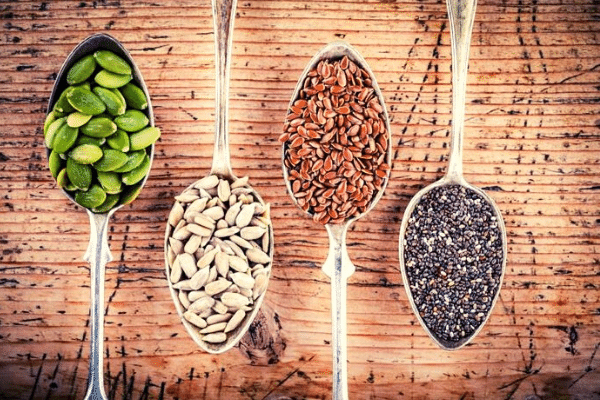
Best things come in small packages – the same is true for the super seeds. Miniscule in size, these seeds are a powerhouse of nutrients. From chia seeds to flax seeds – all these crunchy delicious super seeds come power-packed with a range of essential vitamins, minerals and other nutrients. For the uninitiated, as per experts, immunity is built up over a period of time; hence, daily intake of a variety of nourishing, super seeds, along with a healthy food regime and lifestyle is necessary to connect the dots.
Read here to know the top 5 seeds that you should include in your diet.
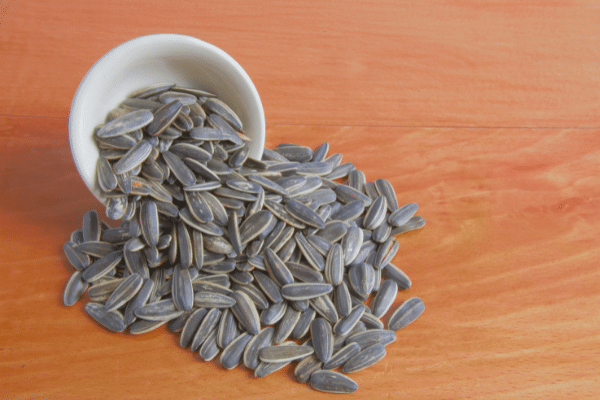
Sunflowers pack many nutrients into a tiny seed.
The main nutrients in 1 ounce (30 grams or 1/4 cup) of shelled, dry-roasted sunflower seeds are (3):
| Sunflower seeds | |
| Calories | 163 |
| Total fat, which includes: | 14 grams |
| • Saturated fat | 1.5 grams |
| • Polyunsaturated fat | 9.2 grams |
| • Monounsaturated fat | 2.7 grams |
| Protein | 5.5 grams |
| Carbs | 6.5 grams |
| Fiber | 3 grams |
| Vitamin E | 37% of the RDI |
| Niacin | 10% of the RDI |
| Vitamin B6 | 11% of the RDI |
| Folate | 17% of the RDI |
| Pantothenic acid | 20% of the RDI |
| Iron | 6% of the RDI |
| Magnesium | 9% of the RDI |
| Zinc | 10% of the RDI |
| Copper | 26% of the RDI |
| Manganese | 30% of the RDI |
| Selenium | 32% of the RDI |
Sunflower seeds are especially high in vitamin E and selenium. These function as antioxidants to protect your body’s cells against free radical damage, which plays a role in several chronic diseases.
Additionally, sunflower seeds are a good source of beneficial plant compounds, including phenolic acids and flavonoids — which also function as antioxidants.
When sunflower seeds are sprouted, their plant compounds increase. Sprouting also reduces factors that can interfere with mineral absorption. You can buy sprouted, dried sunflower seeds online or in some stores.
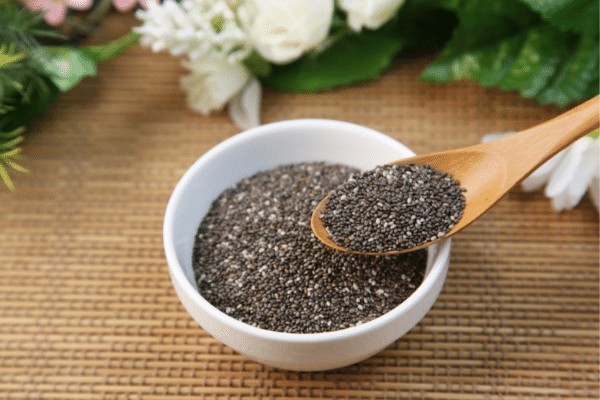
Chia seeds are tiny black seeds from the plant Salvia hispanica, which is related to the mint. The seeds had medicinal applications and made up an important part of the peoples’ diet.
A one-ounce (28 grams) serving of chia seeds contains (1):
This is particularly impressive considering that this is just a single ounce, equalling 28 grams or about two tablespoons. This small amount supplies only 137 calories and one gram of digestible carbohydrate.
Interestingly, if you subtract the fiber — most of which doesn’t end up as usable calories for your body — chia seeds only contain 101 calories per ounce (28 grams).
This makes them one of the world’s best sources of several important nutrients, calorie for calorie.
To top things off, chia seeds are a whole-grain food, usually grown organically. Plus, they’re non-GMO and naturally free of gluten.
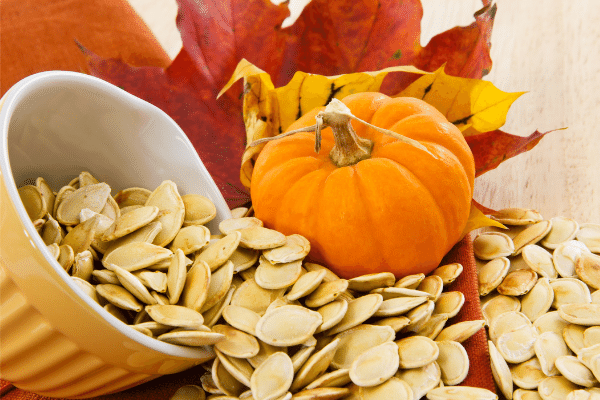
Pumpkin seeds are edible, flat, oval-shaped green seeds. When removed from the flesh of a pumpkin, they can be rinsed and roasted, either plain or with other flavours such as oils and spices, to create a delicious, crunchy snack. Eating only a small amount of them can provide you with a substantial quantity of healthy fats, magnesium and zinc.
Unlike the hard white seeds from a carving pumpkin, most pumpkin seeds bought at the supermarket don’t have a shell.
These shell-free seeds are green, flat and oval.
One ounce (28 grams) of shell-free pumpkin seeds has roughly 151 calories, mainly from fat and protein.
In addition, a 1-ounce (28-gram) serving contains (1):
They also contain a lot of antioxidants and a decent amount of polyunsaturated fatty acids, potassium, vitamin B2 (riboflavin) and folate.
Pumpkin seeds and seed oil also pack many other nutrients and plant compounds that have been shown to provide health benefits
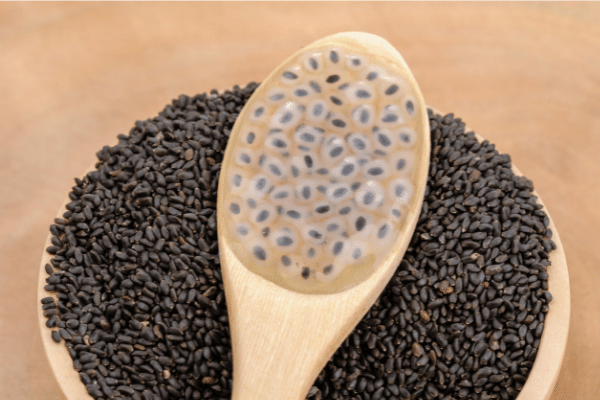
Sabja seeds, also called tukmaria or basil seeds, are black seeds that look a lot like chia seeds and offer immense health benefits. They are native to India but different from the holy basil- also called Tulsi. Sabja seeds are rich in protein, essential fats, carbs, and are packed with fiber. Surprisingly, they contain no calories.
Practitioners of Ayurveda and traditional Chinese medicine have used the seeds from basil plants in herbal remedies throughout history. The consumption of basil seeds is becoming more popular in Western culture.
Preliminary research suggests the seeds may have health benefits, such as supporting gut health, helping with weight management, and helping prevent diseases such as cardiovascular disease and certain cancers. Although promising, current research is scarce and in its early stages.
Research shows that the nutritional composition of basil seeds varies depending on where people grow them. Evidence suggests that 100 grams (g) of basil seeds from India contain:
The main minerals contained in 100 g of basil seeds are:
Research also suggests that 100 g of basil seeds from India contain roughly 442 calories — or around 57.5 calories per tablespoon (13 g).
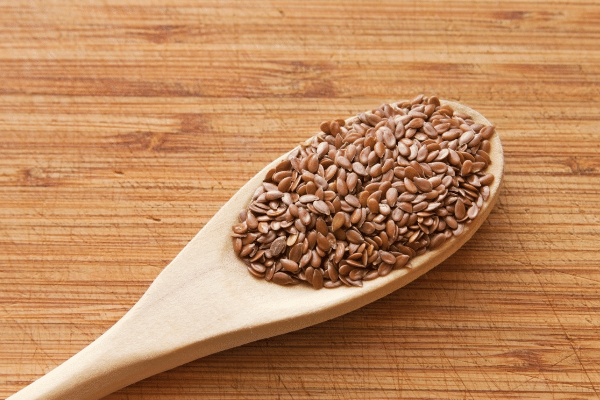
Long before flaxseed was the superseed we know it as today, it was primarily used to create textiles. These days, of course, it’s considered a staple in the nutrition world and is known for being an excellent source of healthy omega-3 fatty acids and fiber.
Flax seeds (Linum usitatissimum) — also known as common flax or linseeds — are small oil seeds that originated in the Middle East thousands of years ago.
Lately, they have gained popularity as a healthy food. This is due to their high content of heart-healthy omega-3 fats, fiber, and other unique plant compounds.
Flax seeds have been linked to health benefits, such as improved digestion and a reduced risk of heart disease, type 2 diabetes, and cancer.
Just one tablespoon provides a good amount of protein, fiber and omega-3 fatty acids, in addition to being a rich source of some vitamins and minerals.
One tablespoon of ground flax seeds contains the following (1):
© 2024 Woahganics. All Rights Reserved.
Privacy Policy | Terms & Conditions